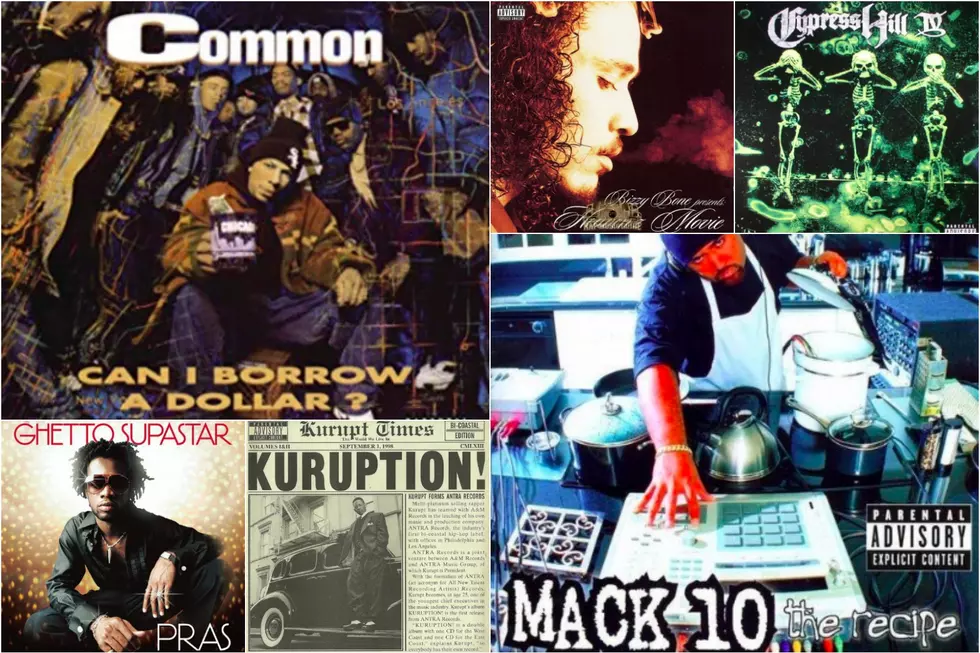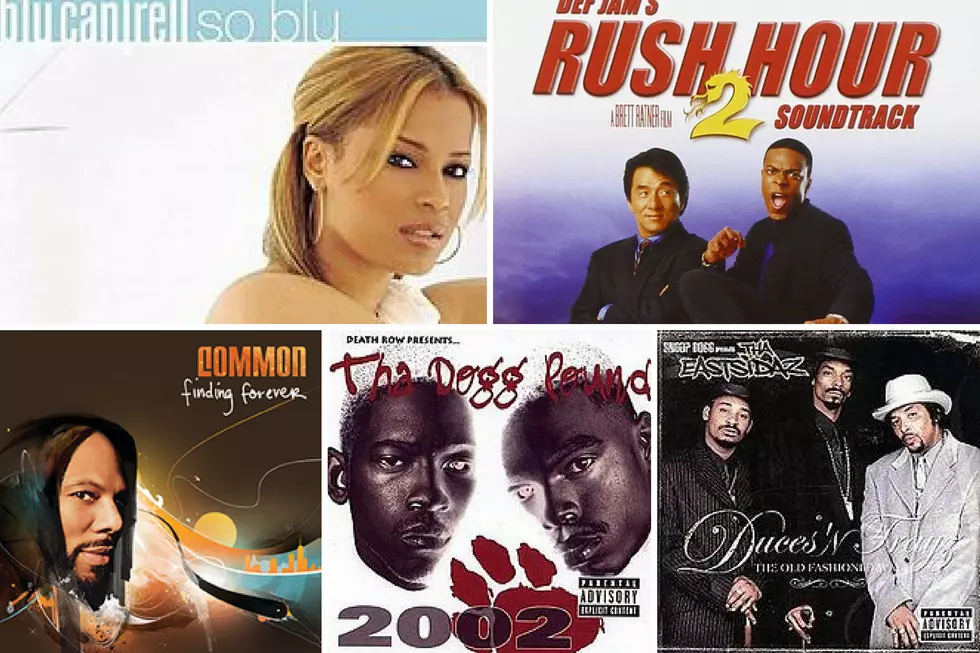
10 Years Ago: Common Finds His Voice on ‘Be’ Album
Common was standing at the crossroads following the mixed critical reception and commercial misfire of his fifth album, 2002’s highly-anticipated -- and equally as polarizing -- psychedelic-steeped Electric Circus.
Poised for mainstream success after his 2000 major label breakthrough, Like Water for Chocolate, Common had quickly etched out his place as one of hip-hop’s finest emerging poets. When he resurfaced with Circus, critics who did laud the release praised its eclectic -- if at times erratic -- forays into the experimental. But, in the end, the boundary-pushing project left fans that were ready for the return of Chocolate’s lush and jazzy introspection lost in its unfamiliar space tripping ambitions.
“In my own dream world, I was thinking that everybody would feel the progression. I thought people was feeling tired of hip-hop like I was,” Common told XXL magazine when looking back on Circus. “And maybe they were, but that didn’t mean they wanted something that was so far out there.”
Left clawing for a comeback, Common’s response in 2005 was Be, a record that reeled the rapper toward his earlier straightforward sensibilities and adjusted his sails for the decade to come when it was released on May 24, 2005. Glowingly soulful, Be was as commanding, hook-heavy and poignant in its vivid storytelling as listeners had come to expect from Chocolate and its predecessors.
On Be, Common never strayed from the commentary that enveloped him in the “conscious” hip-hop category. Lead-off single “The Corner,” a fiery portrait of street life aided by provocative, trailblazing spoken word artists the Last Poets, broke into Billboard’s Top 10. But as compellingly as he could evoke snapshots of inner city realism, Be’s breakneck lyrical trapeze just as soon found Common exploring the spacious, seductive fantasy world in what would become the album’s highest charting single, “Go.”
Though it officially heralded Common’s rebound, Be may be remembered most infamously as the opus that launched his storied collaboration with Kanye West.
After Common, a native of Chicago’s Southside, had relocated to New York City during the making of Chocolate to record with the Soulquarian collective, he reigned in the bubbling up young hometown talent to executive produce the majority of Be with assistance from the late J Dilla.
Common had recently appeared on West’s staggering debut, The College Dropout, lending a verse to “Get ‘Em High” (“Y'all assumed I was doomed, out of tune” he coyly asserts in a self-aware hat tip to Circus’ reception). Soon after, Common announced he was signing to West’s G.O.O.D. Music label.
West, known by then for mining R&B records of the past and wielding them into inventive sped-up samples, was instrumental in embedding his modern twists into the vintage aesthetics of Be. Additions like Honey Cone’s near-breathless plea “Before you lock my love away / Please let me testify” from 1972’s “Innocent Til Proven Guilty” on the single “Testify” were immediate, unrelenting and, above all, what Common needed most at the time: accessible.
The relationship was kinetic -- a budding West earned cred with contributions by the lyrical aficionado while Common reaped the benefits of a fresh perspective behind the boards and a newfound hype by association with the buzzworthy producer.
It’s not to say West didn’t attempt to push Common past his comfort zone at times. West himself admits some of beats that landed on the cutting room floor later appeared on his wildly successful sophomore release Late Registration, which was being recorded around the same time as Be.
Even with West’s contemporary stylistic maneuvers at the forefront, each layer of Be was built around Common’s return to his purest form. A sample of DJ Rogers’ “Faithful to the End” added saccharine sheen to “Faithful,” a devotional to both a higher power and a romantic partner, undoubtedly leaving itself open to comparison to Common’s prior condemnation of hip-hop’s treatment of women on the 1994 Resurrection cut “I Used to Love H.E.R.”
Wasting no momentum, Common’s next release, Finding Forever, rocketed to No. 1 in 2007. It wouldn’t be the last time Common topped the charts over the next decade, but Be and its afterglow remain a turning point when one of hip-hop’s most essential voices finally came into its own.
Watch Common's Go" Video
See 20 Words That Mean Something Completely Different in Hip-Hop
More From TheBoombox









